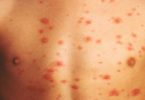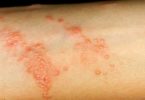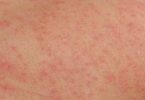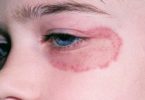What's in this article?
What is Porphyria?
Porphyria (poor-FEAR-e-uh) refers to a group of disorders that result from a buildup of natural chemicals that produce porphyrin in your body. Porphyrins are essential for the function of hemoglobin a protein in your red blood cells that links to porphyrin, binds iron, and carries oxygen to your organs and tissue. High levels of porphyrins can cause significant problems.
Porphyria mainly affects your nervous system, skin and other organs. The signs and symptoms of porphyria can vary, depending on the specific type and severity. Porphyria is usually inherited one or both parents pass along an abnormal gene to their child. But in some types of porphyria, environmental factors may trigger the development of symptoms.
Treatment depends on the type of porphyria you have. Although porphyria usually can’t be cured, certain lifestyle changes may help you manage it.
Symptoms of Acute Porphyria
The symptoms of acute porphyria can develop quickly and last for days or weeks. A salt imbalance sometimes accompanies an episode of this type of porphyria.
The imbalance can contribute to some of these symptoms:
- Chest pain
- Abdominal pain, often severe
- Increased heart rate and blood pressure
- Limb and back pain
- Muscle weakness
- Tingling
- Loss of sensation
- Cramping
- Vomiting and constipation
- Personality changes or mental disorders
- Agitation, confusion, and seizures
Long-term complications in some patients have included:
- Chronic pain
- Depression
- Kidney damage
- Liver cancer
Symptoms of Cutaneous Porphyria
Symptoms of cutaneous porphyria occur when the skin is exposed to sunlight.
The most commonly affected areas include the back of the:
- Hands
- Forearms
- Face
- Ears
- Neck
The symptoms include:
- Blisters
- Itching
- Swelling of the skin
- Pain
- Increased hair growth
- Darkening and thickening of the skin
Treatment of Porphyria
There is no cure for porphyria. Treatment focuses on managing symptoms. Most cases are treated with medication.
Treatments for hepatic disease include:
- beta blockers (Atenolol) to manage blood pressure
- high carbohydrate diet to aid recovery
- opioids for pain management
- hematin to shorten attacks
Treatments for erythropoietic disease include:
- iron supplements for anemia
- blood transfusions
- bone marrow transplant





